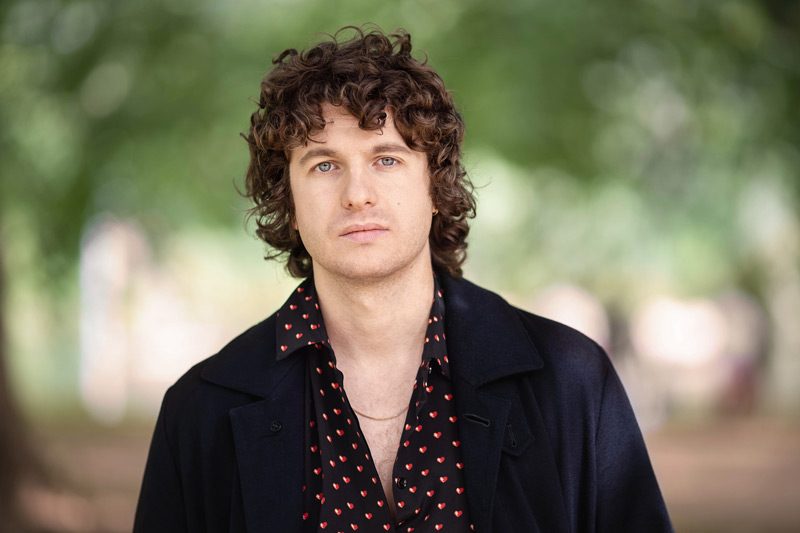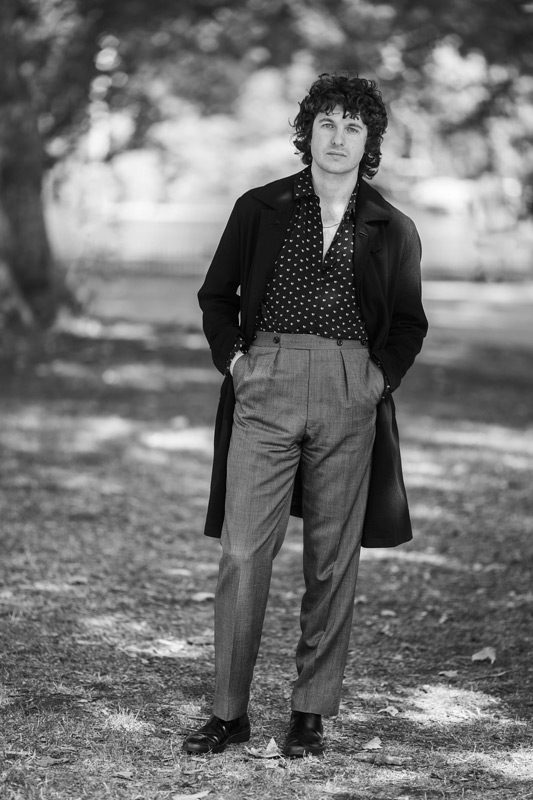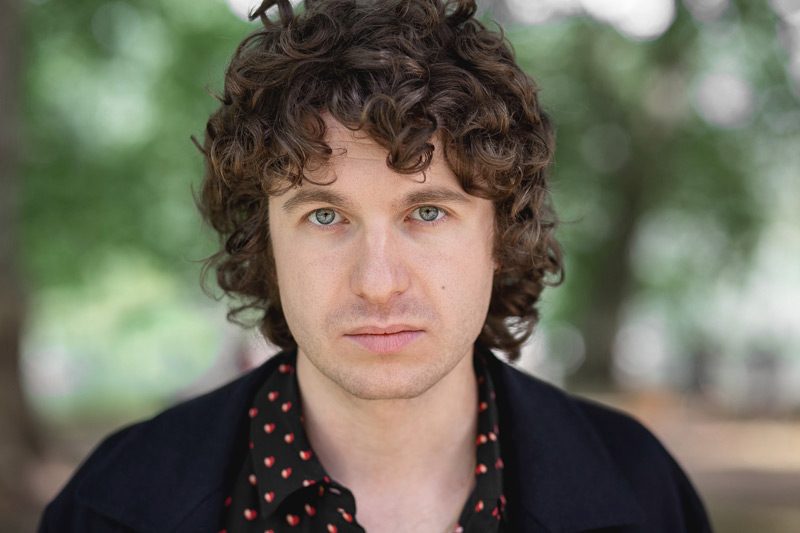FAULT Magazine Interview with The Kooks’ Luke Pritchard

WORDS: ROBERT K. BAGGS
PHOTO: ROBERT K. BAGGS
With cigarette smoke on my All Saints cardigan, and snakebite on my converse, I would shuffle in to the local meeting point for fresh-faced dreamers, when drinking was new and hangovers didn’t last. A local band would awkwardly slither on stage and bellow some angsty homage to Queens of the Stone Age, before a playlist filled the gaps between acts. The quiet guitar rift of Naïve would start and the volume of the swaying masses increases before converging in to a flat chorus of karaoke. The Kooks have been anthemic to so many people for so many years, and in a symbiotic relationship, the band has stood the test of time and so has their music.
To this day, a long shopping list of their tracks will get a rise out of audiences of all ages, and they stand as only a handful of the early indie era who have evolved and maintained relevance as the geography of modern music has shifted dramatically, as it’s one to do. Sticking to their core musical beliefs and tastes, they haven’t leaned in to the whims of radio air time — a commercial and business risk that’s both noble and saddening — but have instead developed their sound and massaged it in different directions. Their new album Let’s Go Sunshine takes another step in to a refined and thoughtful motif that still bears the thread of the playful, nostalgic sound that made them famous.
FAULT: The Kooks have stayed together for so long now, and that’s rare to see. Bands, like companies, don’t usually last that long whether they succeed or not. You’ve had some changed in personnel, but generally it’s stayed constant. Do you have any advice for other bands starting out with regards to longevity?
Luke: It’s a mixture of the team. We’ve all just soldiered on when things were tough, and when things were good, we didn’t lose out heads… completely. We also have a very caring and small management team, so we get a lot of personal care which is a big part of it. They become family and friends as much as a business partnership. I’ve got to believe we’ve always put out decent music and that’s kept people excited and kept the song writing a bit more inspired. Or it’s just luck!
It’s interesting, I’ve spoken to artists before privately about support network and how when you “make it” so to speak, they become crucial in keeping you grounded and healthy, or working to your detriment. Particularly when you go through a dark period and you need a break, I know some artists have had their support network tell them they can’t have a break, they have obligations.
Luke: Yeah and there’s mouths to feed at that level. People depend on you to make money. You have to be strong with that stuff. We’re a different kettle of fish in many ways as we’re a band and we’re not megastars, so we’re not hugely pressured. But with this new album (Let’s Go Sunshine), there are pressures. There are guys in there who have kids and need to pay their mortgage, there’s all that going on. When we took some time, I raised it, and it was difficult. But it did work. It does work. Happiness is so important, mental health is so important, general wellbeing — even if you’re getting smashed all the time and enjoying it, it can get dark. Most song writers are highly emotive; your emotions are just under the surface. So you can lose the plot a bit, and it’s sad to see. But with us, we have a couple of conversations and can take a step back if we feel we’re doing the wrong thing. This is all very relevant to Let’s Go Sunshine. I think this is a really fucking special record because it’s a band coming back in to focus and being a band again, but it took us four years.
Why did it take that long? Was it perfectionism, trial and error, or something else?
Luke: It wasn’t really trial and error, we did some stuff that we shelved. So we decided to stop, regroup, and I went away and wrote some songs and we put out a best of album. It lucked out really, because from that we did some live shows and it all started to come together.

I find it interesting to see how bands progress with their sound over the years. I spent some time yesterday comparing Let’s Go Sunshine with Inside In/Inside Out which obviously shot you to prominence.
Luke: Well, this is the funny thing really. When we first met you said that Inside In/Inside Out had soundtracked a time in your life, which is really cool. But it’s a double-edged sword and I was talking about this the other day. There are a few bands I would say who are in a similar position. We are trying to breakout of that sound back then which was synonymous with that time for so many people. For example, we played a festival the other day and this girl said “listening to you reminds me of when I was 15”. It’s cool, but it’s tough! There are obviously bands that don’t have that and have this freshness. Where as we feel like we’re anchored to our first album. With this new album it’s very important for us to try and break out of that, even though we’re keeping our sound.
I hadn’t thought of it like that, but it’s true. When I say you soundtracked a time in my life, it could be seen as a sort of backhanded compliment, where I’m also suggesting you’re not relevant anymore, which I of course didn’t intend.
Luke: Oh no, I don’t see it as a backhanded compliment. But it’s funny with public perceptions as to me, day to day, what we’re doing is fresh. But it’s got to be a testament to Inside In/Inside Out being such a strong record. I don’t find it frustrating, but it’s very interesting. It’s as if we have this sound that locks us to that time and we will break out of it. Which is what our new record is about.
It is interesting. I mean, with Arctic Monkeys for example. With their albums, they seemed to always make a conscious change. Whereas, with The Kooks, it feels more like evolution than revolution. There’s a strand going through your albums that I recognise as ‘The Kooks’ but Let’s Go Sunshine is a new sound. But if you compare early Arctic Monkeys with Tranquillity Base Hotel & Casino, it’s just worlds apart. So, for you, I guess you want to break away from your sound, but at the same time, breaking away is bitter sweet.
Luke: It is bitter sweet. On the new album I was conscious to show the DNA of the band. Even when I was writing Four-Leaf Clover, I was jamming on the Ooh La chords, but Hugh brought in a more Smiths vibe to the guitarwork. We want to keep the sound but progress. You can only emulate the bands that you love, and no matter how far you go, there’s always a nod back.
Have you tried revolution as opposed to evolution?
Luke: Well, our fourth album technically was that. I mean, it was a commercial flop, but I’m really proud of that album. We ripped up the album and started again. So, we did it once, and it was exciting. But this new album is about defining us and being ourselves. We’re not trying to follow the trends; I’m not really in to trends, rightly or wrongly. I had a lot of people saying to me that we should get off the guitars and team up with producers and DJs, but it’s just not us. We’re guitars and we’re good live.
I would have hated if you had done that. I can see the commercial value, but I’d have hated it!
Luke: Radio is a tough one, particularly when you’re competing with high-end produced stuff. We never entertained that change, but there were some really great people telling us to do it. They weren’t being arseholes. But I believe in what we did. I love that we found this guy Brandon Friesen who has worked with Nickelback and Sum41, who are not in my world at all. He hadn’t done any band records for years and was working with Billy Ray Cyrus and doing country and I just met him at a barbeque. And we just decided that we should work together and make a proper record like how they used to be made.

Right, time for some straightforward questions. Favourite song off the new album?
Luke: Weight of the World.
All time favourite song to play live?
Luke: Bad Habit. Great guitar opener.
Right, this can be off the record if you want, but do you hate playing Naïve?
Luke: Ha! It can be on the record. I hate playing some of the old songs on radio sessions, but live it’s always great. Even if you don’t feel like playing it, when the crowd get involved it’s amazing. Weirdly no then, I actually love playing it. For a while I said we should do a different version, but I don’t know if we can. It’s such an epic moment when we play that stuff live. It’s a euphoric tune and chorus. Naïve is so unique in our music as we don’t have any other song like it really. But it’s funny, I wrote those when I was so young.
That’s a good point. Do you have any musical regrets? You’ve obviously grown up while putting out music.
Luke: Yeah, I have written some bad songs… some bad songs. But there’s only a few artists in the world that have never written a bad song, I mean maybe not even that. Even David Bowie wrote occasional stinkers. But one of my biggest regrets is on our second album with the mixing. One day I want to go back and mix it again and I want to do it myself. We were going to the States and we were trying to do stuff over there and you get blinded by that, and we mixed it with a big American sound. It was sad really as there was inevitably a backlash coming for us after that first album.
Yeah, you must have been under pressure for that second album to succeed.
Luke: We were, and we did it quickly too. We didn’t take our time. But, some of those songs have lasted well. But the mixing on that second album is definitely my biggest regret.
Ok, what is your most memorable performance? I mean, you recently opened for the Rolling Stones, so that must be up there!
Luke: The Stones was cool actually as I have a family connection. My Dad played with the Stones in his bands in the 60s so that was a nice connection. There are a few performances that stand out though. When we played Ibiza for the first time we were just blowing up but no one really knew us. We played in Ibiza supporting Faithless, who are amazing live, just as Naïve was hitting and it felt like the band might actually make it you know? Glastonbury too of course.
Finally, what is your FAULT?
Luke: I think my biggest fault is over thinking, its a bit of a double-edged sword because with songwriting it can work out well to never give up and keep chipping away at a song, but you gotta know when to stop otherwise the outcome will suffer. Quite often I’ll rewrite and rewrite and then go full circle back to my original idea. And I get into some pretty bad sleep patterns when I’m working and can mess me up!
